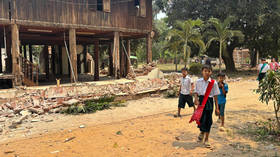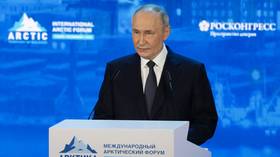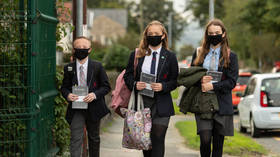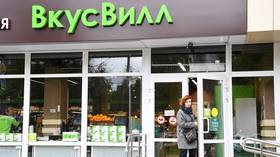'Everyone must be vaccinated and re-vaccinated': Russia's re-inoculation drive essential for stopping Covid-19, experts tell RT
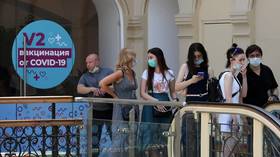
With the Covid-19 Delta variant tearing through Russia and infection numbers beginning to skyrocket, the country has introduced a re-vaccination campaign in an attempt to achieve herd immunity and fight the worsening third wave.
The initiative, announced by the country’s Ministry of Health last week, has been recommended by the World Health Organization (WHO). According to the most up-to-date scientific research, protection from coronavirus persists for six months, regardless of how it was obtained. Therefore, after half a year, Russia will give a third dose to already inoculated citizens. If all goes to plan, this will hopefully speed up the country’s attempt to reach herd immunity in the adult population.
Vladimir Dedkov, an epidemiologist at St. Petersburg’s Pasteur Institute, told RT that vaccination will continue to work against Covid-19 even if it mutates, because changes in the structure of the coronavirus genome won’t have much of an impact.
“They don’t significantly affect the antigenic structure,” he explained. “The safety margin of the Covid-19 vaccine is quite high. Therefore, if the genome of the virus changes, the vaccine still remains effective.”
The country’s attempt to reach herd immunity also means vaccinating young people, who are equally at significant risk of getting seriously ill after contracting the new Delta variant. According to Oksana Drapkina, the head of Russia’s National Medicine Research Center, the current situation with Covid-19 means complications have become more common.
“Shortness of breath occurs, the lungs are affected, and it progresses rapidly,” she explained. “Therefore, people over the age of 18 need to be vaccinated and re-vaccinated.”
Drapkina also noted that, due to all the new variants, nobody knows quite how many antibodies are needed to fight off the virus.
“Antibodies developed for the original strain may not react properly to the new strain, which is why it is so important to be vaccinated. This is a WHO recommendation.”
Also on rt.com Moscow’s dilemma: As Delta strain batters Russian capital, politicians & businesses count cost of Covid-19, but on different termsHowever, despite scientists not yet knowing just how many antibodies are needed, Covid-19 vaccines are proven to work, despite there being no jab that can guarantee 100% effectiveness. Speaking to RT, Smorodintsev Influenza Research Institute head Dmitry Lioznov noted that getting inoculated can help reduce both the symptoms and the consequences.
“Vaccination helps to prevent severe forms and fatal outcomes,” he explained. “Vaccinated people have a risk of coming into contact with a Covid-19 carrier and becoming sick. Therefore, all those vaccinated should follow restrictions, such as wearing masks and keeping their distance.”
Re-vaccination started in Moscow on July 1. Following the national Ministry of Health recommendations, it is available to citizens who were first vaccinated more than six months ago.
“Residents will be able to choose any vaccine available at 20 re-vaccination points,” a statement on the official Moscow government website says.
Russia’s vaccination drive comes as the country’s Covid-19 situation has seriously deteriorated. On Monday, the government reported 24,353 new coronavirus cases just 24 hours – a considerable rise from 9,145 recorded on June 5, one month ago.
Last month, Moscow Mayor Sergey Sobyanin revealed that the city had been hit hard by the new Indian strain of the coronavirus, now commonly referred to as the Delta variant.
“According to the latest data that we received, 89.3% of those who fell ill with Covid-19 have the Indian variant,” he said, noting that hospitals were being stretched to keep up with the growing number of cases.
Like this story? Share it with a friend!




